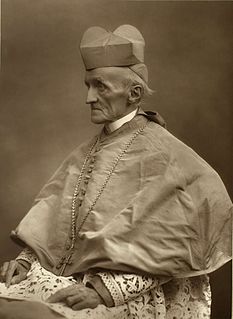A Quote by Alexander MacLaren
Our work, abiding, shall bring to us the endless glory with which God at last overpays the toils, even as now He overanswers the poor prayers of His laboring servants.
Related Quotes
Let us remember, there is One who daily records all we do for Him, and sees more beauty in His servants' work than His servants do themselves... And then shall His faithful witnesses discover, to their wonder and surprise, that there never was a word spoken on their Master's behalf, which does not receive a reward.
Because Jesus Christ has prepared Himself from the foundations of the world we can trust Him as one uniquely qualified through the fullness of His love for His Father and us. His love, meekness, condescension, knowledge, power, commitment to agency, and obedience combine to bring this elusive peace to all of God’s children. Our peace was purchased by the shedding of the innocent blood of God’s purest Son. Our trust in His capacity to bring us this peace can be complete because that has been part of His work and His glory from the beginning.
In a very real sense not one of us is qualified, but it seems that God continually chooses the most unqualified to do his work, to bear his glory. If we are qualified, we tend to think that we have done the job ourselves. If we are forced to accept our evident lack of qualification, then there's no danger that we will confuse God's work with our own, or God's glory with our own.
'Now we are the sons of God'. This is the starting point of adoption. However, 'it does not yet appear what we shall be: but we know that, when He shall appear, we shall be like Him; for we shall see Him as He is' (I Jn. 3:2). This is the perfection of adoption of sons and renewal which God bestowed on us in Christ, and of which John says in his Gospel that, 'Christ gave power to become the sons of God, even to them that believe on His name: which were born, not of blood, nor of the will of the flesh nor of the will of man, but of God' (Jn. 1:12-13).
Once we agree with God that we exist for His pleasure and His glory, we can accept whatever comes into our lives as a part of His sovereign will and purpose. We will not resent, resist, or reject the hard things, but embrace them as friends, sovereignly designed by God to make us more like Jesus and to bring glory to Himself.
He comes to us as One unknown, without a name, as of old, by the lakeside, He came to those men who knew Him not. He speaks to us the same words: "Follow thou me!" and sets us to the tasks which He has to fulfill for our time. He commands. And to those who obey Him, whether they be wise or simple, He will reveal himself in the toils, the conflicts, the sufferings which they shall pass through in His fellowship, and, as an ineffable mystery, they shall learn in their own experience Who He is.
It consists in a watchful, minute attention to the particulars of our state, and to the multitude of God's gifts, taken one by one. It fills us with a consciousness that God loves and cares for us, even to the least event and smallest need of life; and that we actually have received, and do now possess as our own, gifts which come direct from God. It is a blessed thought, that from our childhood God has been laying His fatherly hands upon us, and always in benediction; that even the strokes of his hands are blessings, and among the chiefest we have ever received.
Let us serve Him faithfully as our Master. Let us obey Him loyally as our King. Let us study His teachings as our Prophet. Let us work diligently after Him as our Example. Let us look anxiously for Him as our coming redeemer of body as well as soul. But above all let us prize Him as our Sacrifice, and rest our whole weight on His death as atonement for sin. Let His blood be more precious in our eyes every year we live. Whatever else we glory in about Christ, let us glory above all things in His cross.
When religion has said its last word, there is little that we need other than God Himself. The evil habit of seeking God-and effectively prevents us from finding God in full revelation. In the and lies our great woe. If we omit the and we shall soon find God, and in Him we shall find that for which we have all our lives been secretly longing.






























